EVYD Technology Drives Innovation and Collaboration in Digital Health AI at Healthcare AI Symposium
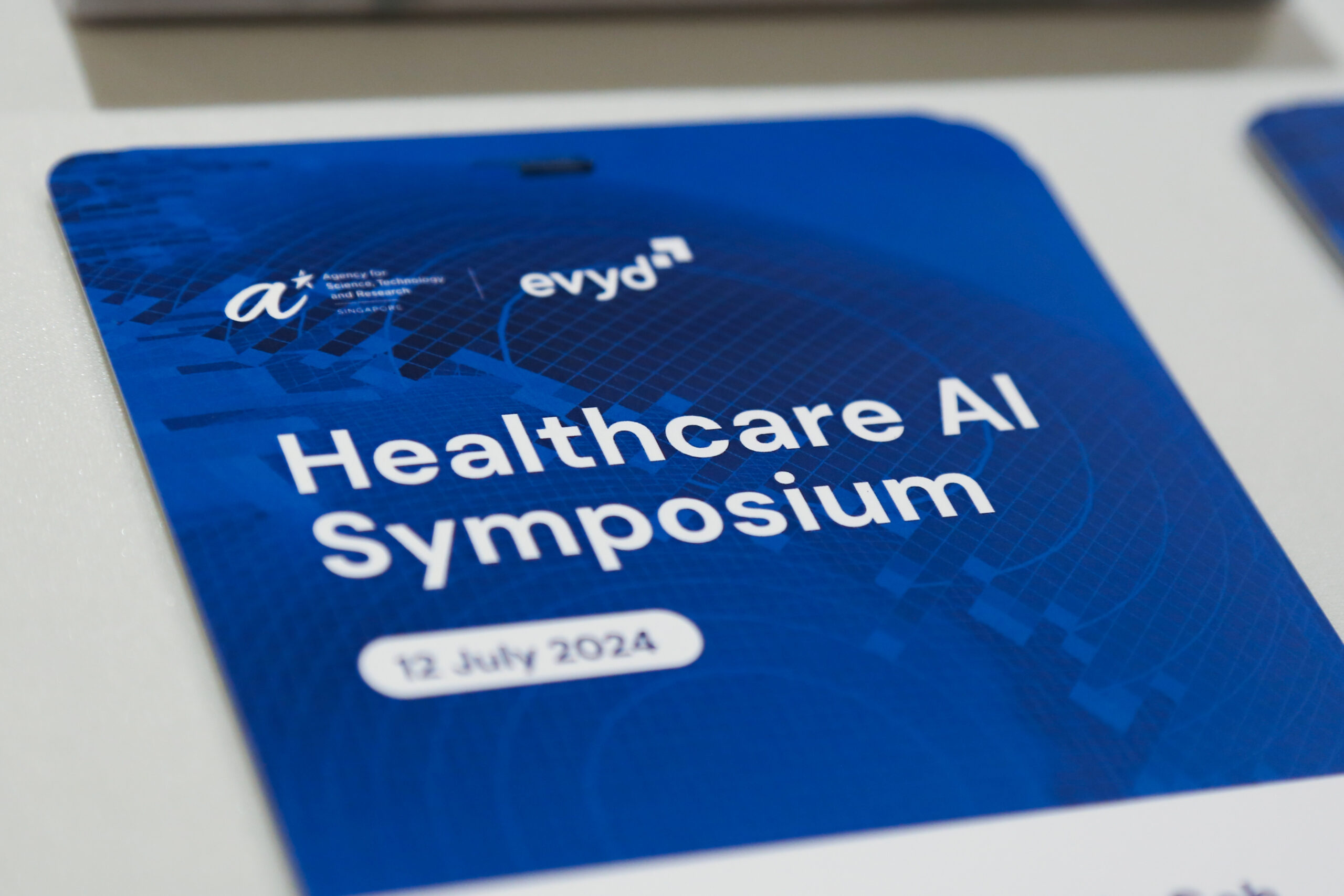
- The inaugural Healthcare AI Symposium showcased the progress of the A*STAR-EVYD Joint Lab in AI-powered healthcare solutions, and convened over 100 policymakers, researchers, healthcare professionals, academics, investors, leaders and players from the industry.
- The A*STAR-EVYD Joint Lab launched its white paper “Artificial Intelligence for Population Health and Digital Health in Singapore”
- EVYD Technology and Duke-NUS Medical School Centre of Regulatory Excellence (CoRe) announced partnership to collaborate in the fields of Artificial Intelligence (AI) governance, regulation, and its application in digital health.
Singapore, 29 July 2024 – EVYD Technology, a leading healthcare technology company in Southeast Asia, and the Agency for Science, Technology and Research (A*STAR) jointly hosted the inaugural Healthcare AI Symposium. The event marked the first anniversary of the A*STAR-EVYD Joint Lab, established to be a leading global hub for fostering advancements in AI-driven solutions for population health and digital health. The symposium showcased AI innovations by the Joint Lab and its ecosystem partners and focused on enabling the translation of these innovations into tangible real-world outcomes to optimise health and economic outcomes.
This symposium’s theme, “Transforming Healthcare with AI through Innovation and Collaboration”, gathered over 100 policymakers, researchers, healthcare professionals, academics, investors, and industry leaders for a full-day event.
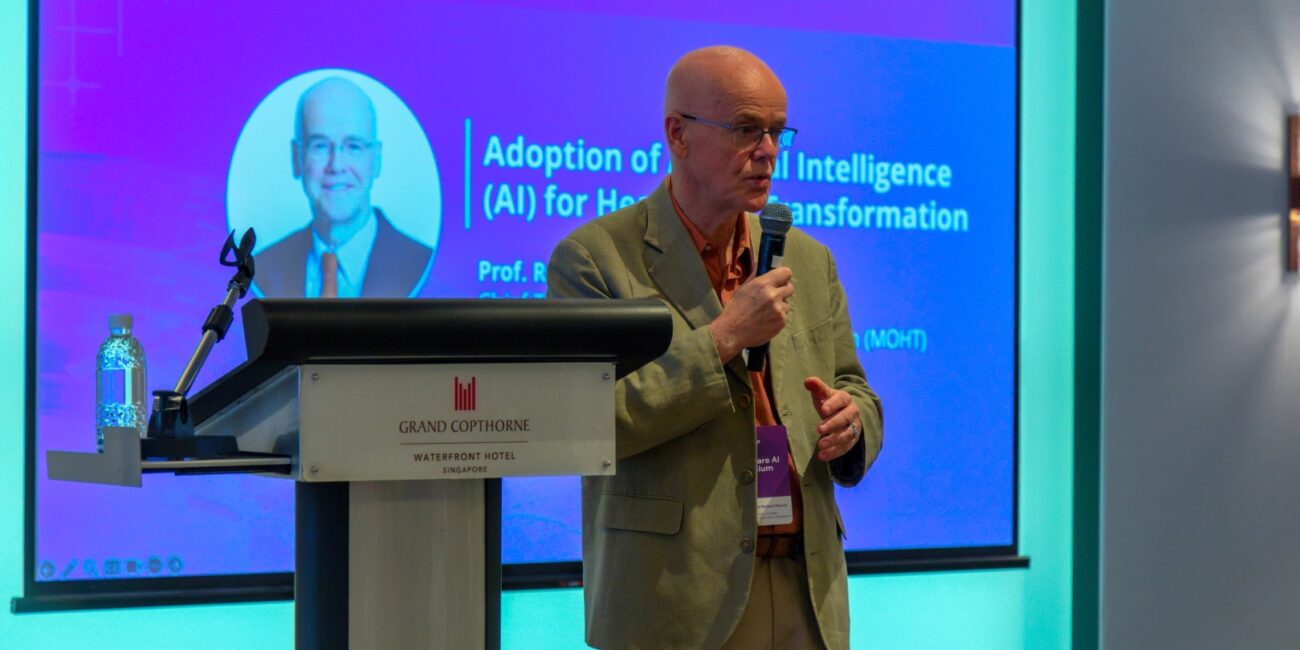
The symposium featured a thought-provoking keynote address titled “Adoption of Artificial Intelligence (AI) for Healthcare Transformation” delivered by Prof Robert Morris, Chief Technology Strategist, MOH Office for Healthcare Transformation (MOHT). He discussed the transition of health systems towards preventive care and lower acuity care settings and highlighted the need for a foundation model encompassing lifestyle and clinical events, including digital phenotyping to capture social determinants of health. Professor Morris also reviewed the use of Generative AI in healthcare, expressing hope in its potential to alleviate the workload of healthcare workers while acknowledging that several limitations still need to be addressed.
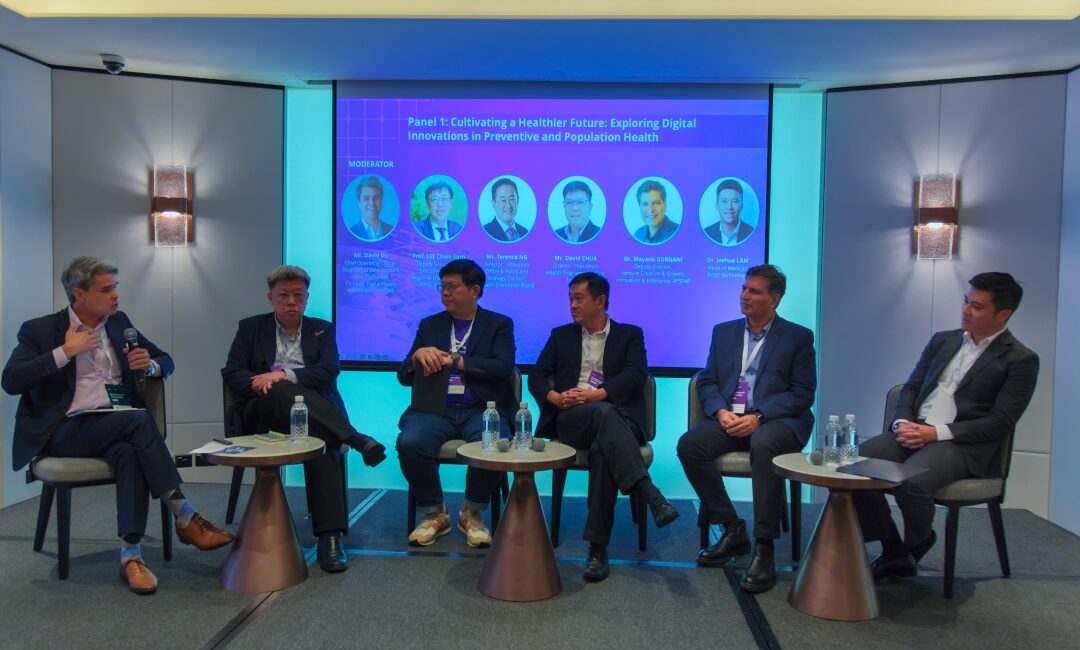
The panel discussions delved into key themes. The first panel, “Cultivating a Healthier Future: Exploring Digital Innovations in Preventive and Population Health”, moderated by Mr David Vu, Chief Operating Officer of DxD Hub, examined how digital innovations are transforming preventive and population health. Panellists from A*STAR, EVYD Technology, the Health Promotion Board, SingHealth, and Synapxe shared their experiences in integrating digital solutions into existing healthcare system workflows and health promotion programmes in Singapore, covering aspects of both benefits and challenges.
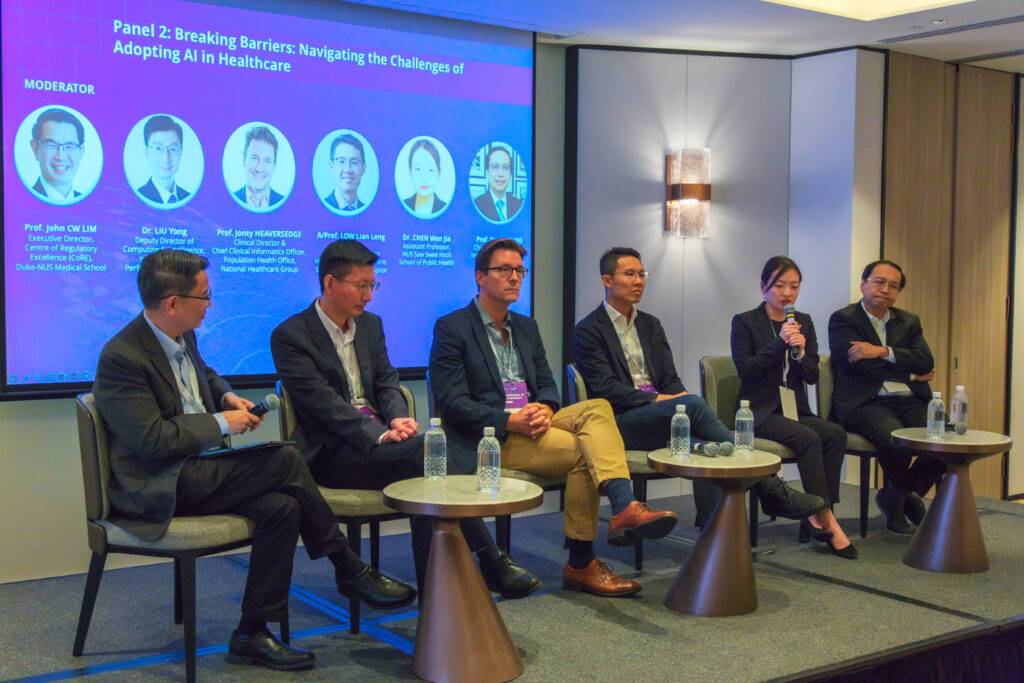
The second panel, “Breaking Barriers: Navigating the Challenges of Adopting AI in Healthcare”, moderated by Professor John Lim, Executive Director of the Duke-NUS Medical School Centre of Regulatory Excellence (CoRE), tackled crucial questions surrounding patient safety, data privacy, and effective integration of AI into clinical workflows. Panellists from A*STAR, the Institute of Mental Health, the National Healthcare Group, the NUS Saw Swee Hock School of Public Health, and SingHealth emphasised the need for IT system integration to enable robust AI model training in healthcare. They also stressed the importance of change management and raising awareness amongst clinicians and healthcare professionals for successful AI adoption.
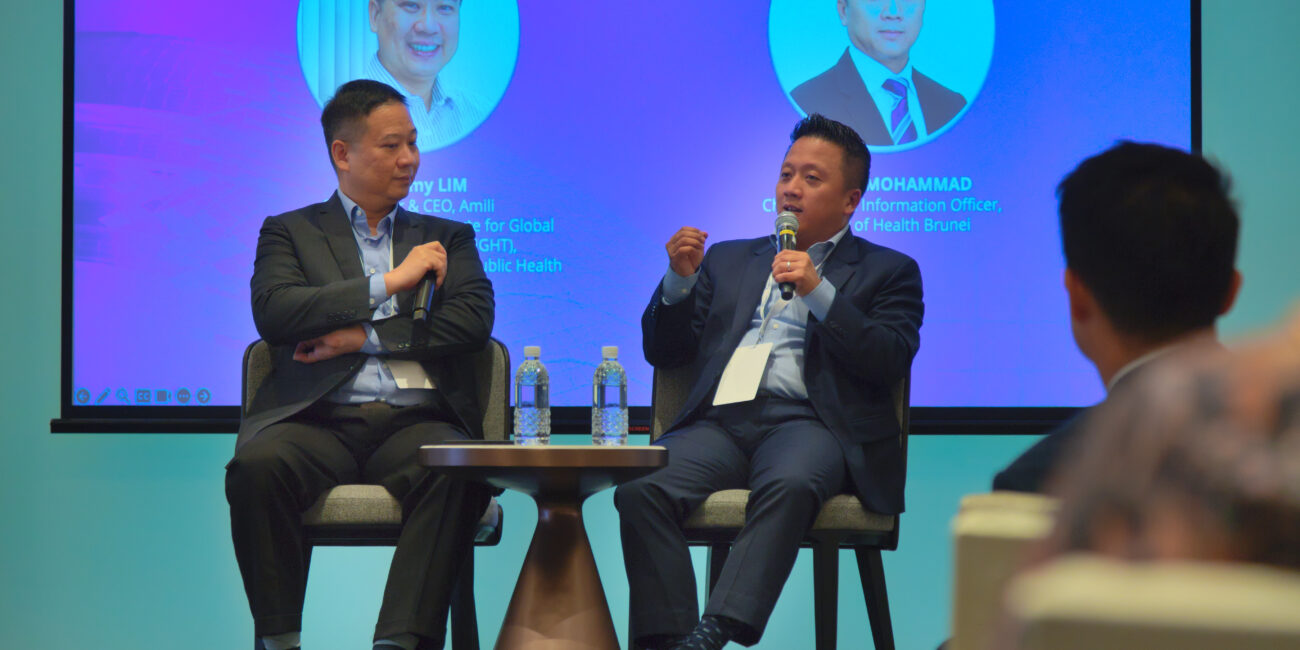
A fireside chat, “Digital Transformation in Brunei’s Healthcare: A Success Story”, moderated by Dr Jeremy Lim, CEO & Co-founder of AMILI, highlighted the Sultanate’s initiative to integrate clinical data from BruHIMS, the national electric health record system and lifestyle data from BruHealth, the national health mobile application, into EVYDENCE, the Brunei Ministry of Health’s data operating platform. This integration creates a comprehensive 360-degree view of patients. The platform has enabled the country to excel through advanced analytics and actionable insights, such as evaluating clinical outcomes by disease types, monitoring clinical quality indicators, informing policymaking in healthcare resource allocation, and implementing tailored preventive measures to address emerging health trends. Chief Medical Information Officer from the Brunei Ministry of Health, Pg Dr Noor Azmi emphasised the importance of considering the value to users when designing solutions to successfully drive adoption.
At the symposium, the Joint Lab launched its inaugural white paper, “Artificial Intelligence for Population Health and Digital Health in Singapore,” co-authored by the Agency for Science, Technology and Research (A*STAR), Duke-NUS Medical School CoRE, and EVYD Technology. The paper details how AI can be integrated into current healthcare systems to address pain points, while emphasising the importance of collaboration and strong regulatory and data governance frameworks to ensure the safe adoption of AI solutions. Dr. Joshua Lam, Head of Medical at EVYD Technology, presented the paper summary and moderated a panel discussion with contributors from A*STAR, Duke-NUS Medical School, and the MOH Office for Healthcare Transformation. The discussion focused on the importance of increasing data veracity to capture socio-behavioural data for AI application in managing chronic diseases and mental health. It also covered the role of regulatory sandboxes and the harmonization of global regulatory standards to facilitate AI adoption in healthcare.
A significant highlight at the symposium was the announcement of three new partnerships. The first was a Memorandum of Understanding (MoU) between Duke-NUS Medical School CoRE and EVYD Technology to strengthen collaboration in the fields of AI governance, regulation, and its application in digital health. The second was a MoU between A*STAR’s Institute of High Performance Computing (A*STAR’s IHPC) and EYE AI to advance AI technologies aimed at enhancing diagnostic accuracy, streamlining clinical workflows, and improving patient outcomes in the field of ophthalmology. The third was a licensing agreement between A*STAR’s IHPC, EVYD Technology and SingHealth to commercialise Doctor Buddy, a multilingual interactive AI-powered virtual assistant, with SingHealth as the first customer.


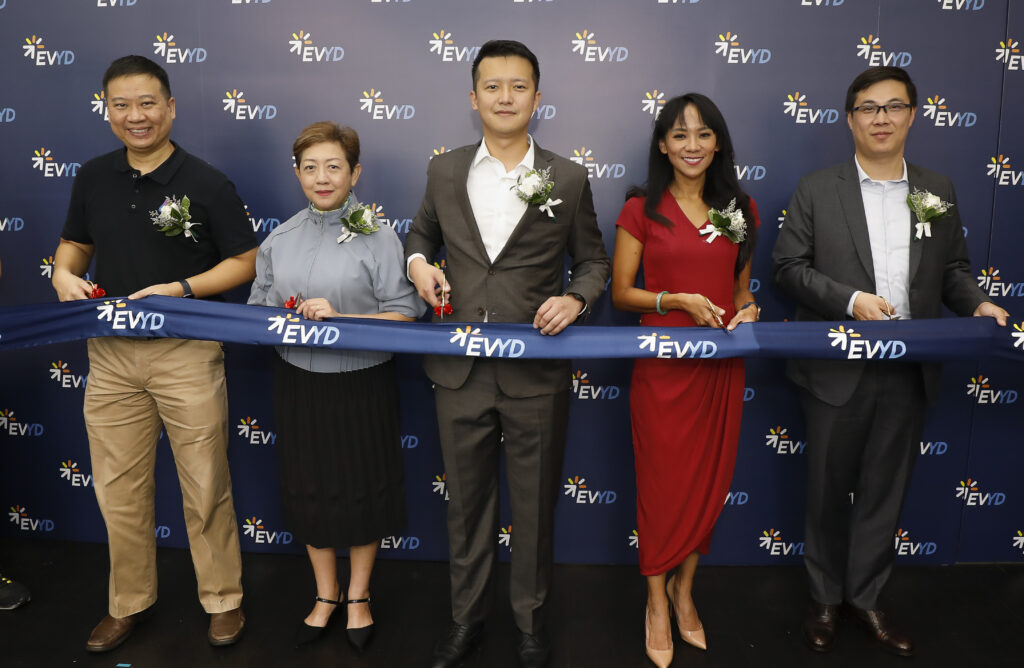
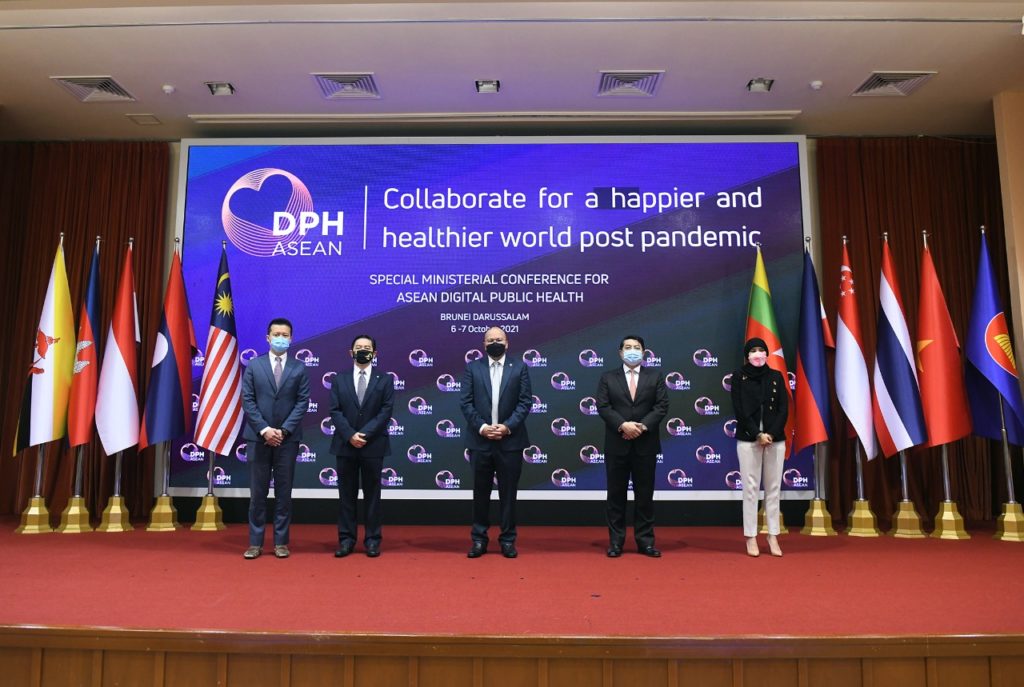

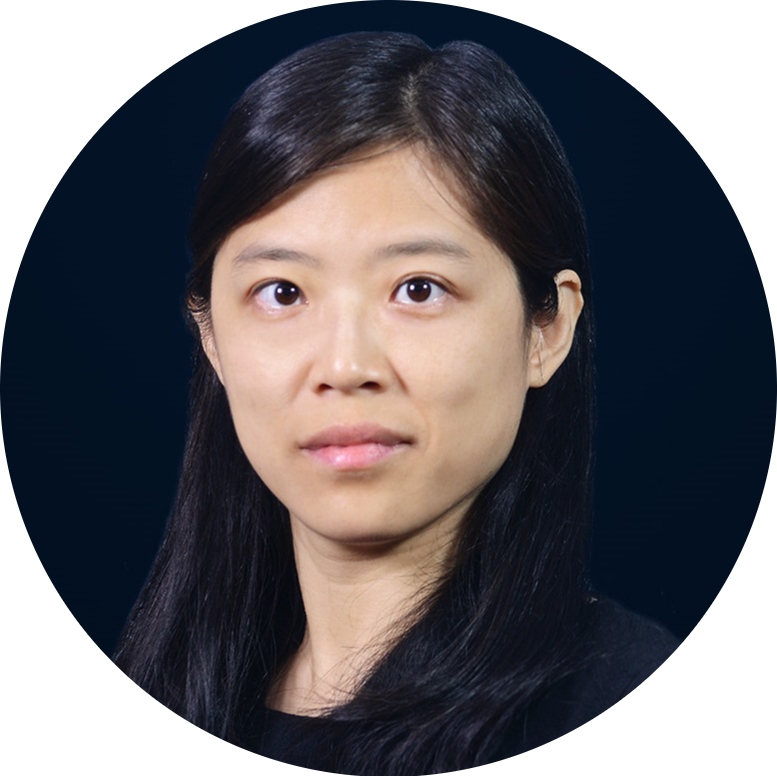



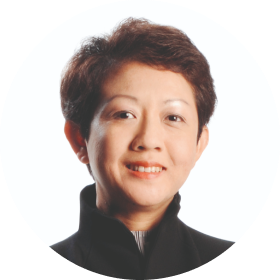


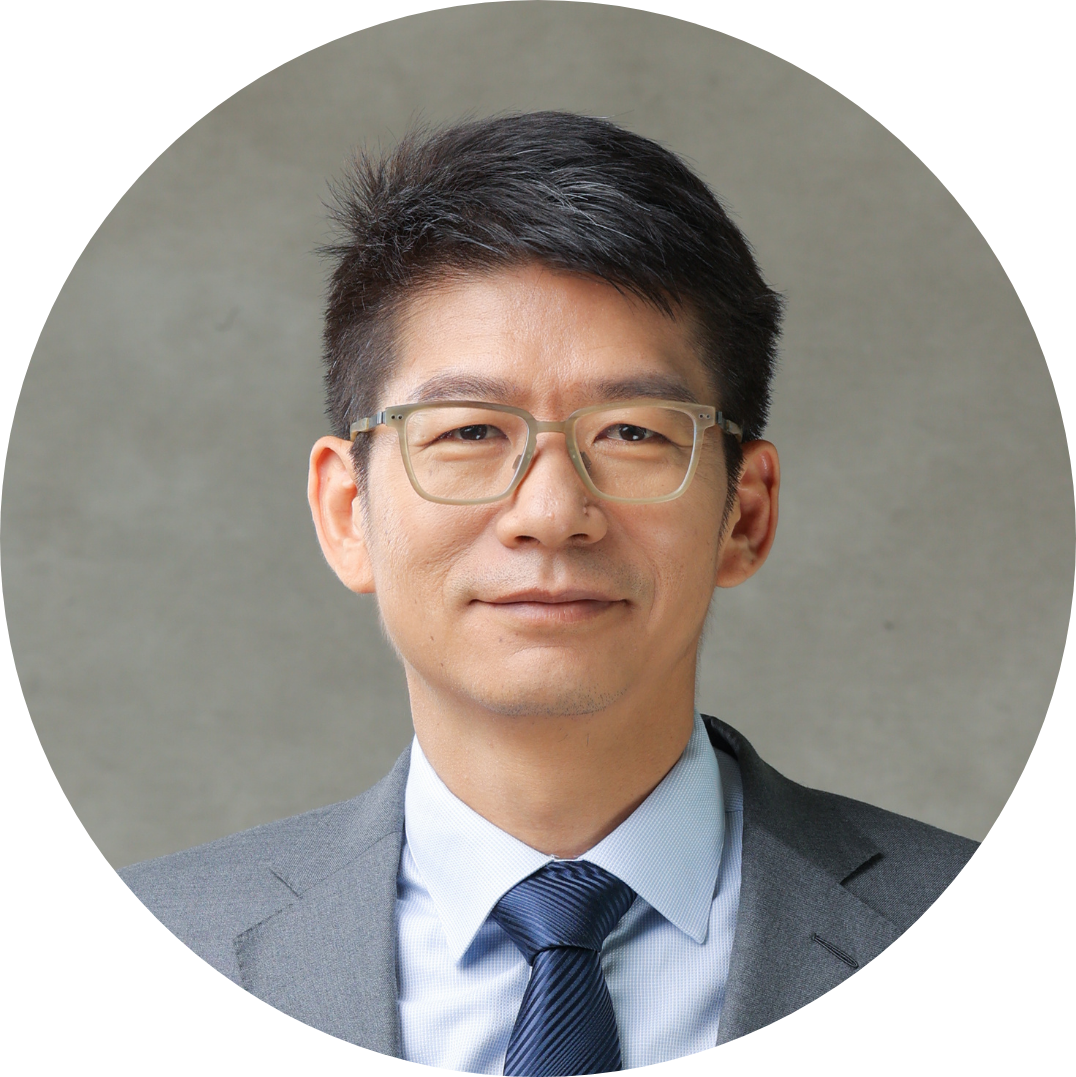


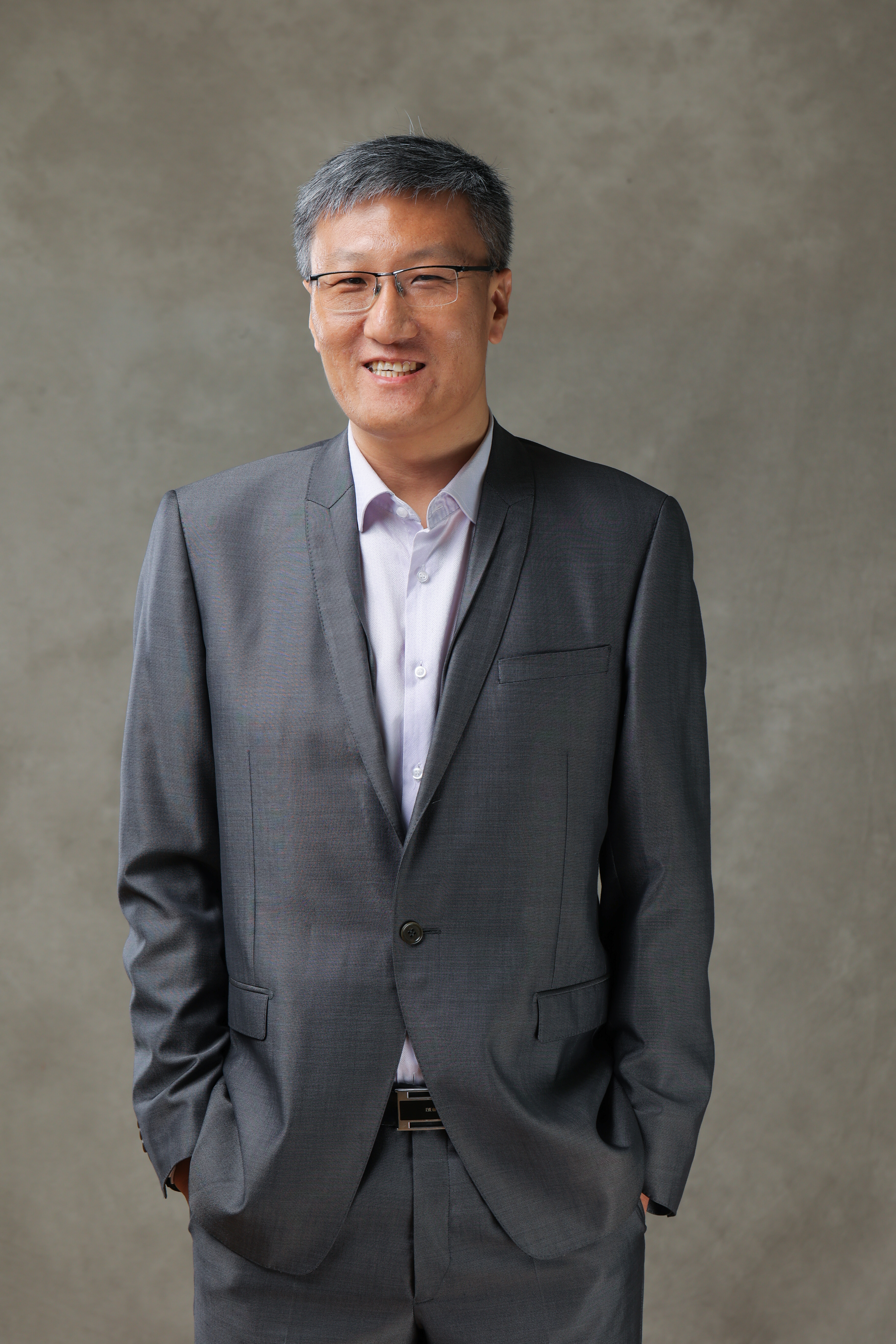


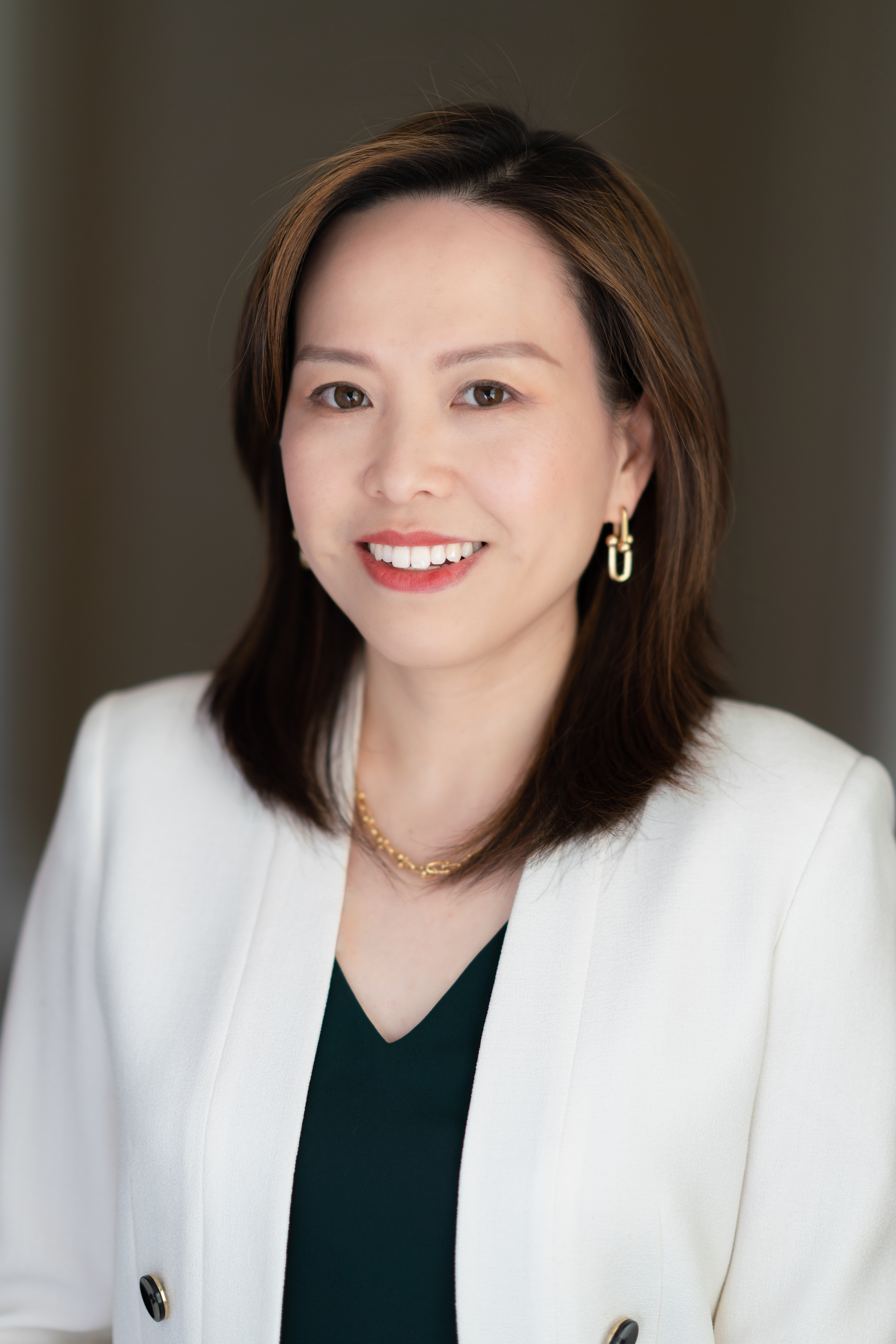
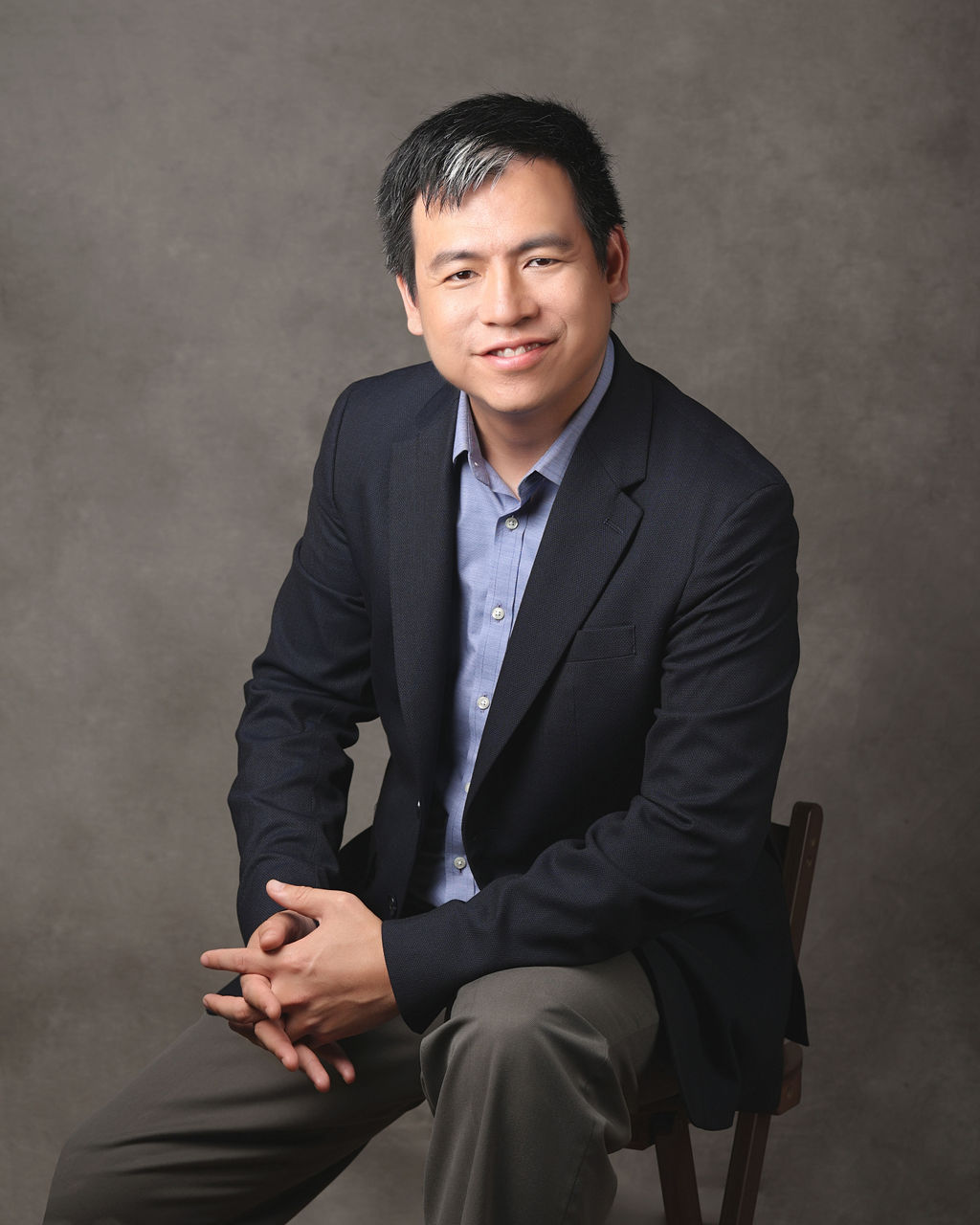

Leave a comment
You must be logged in to post a comment.